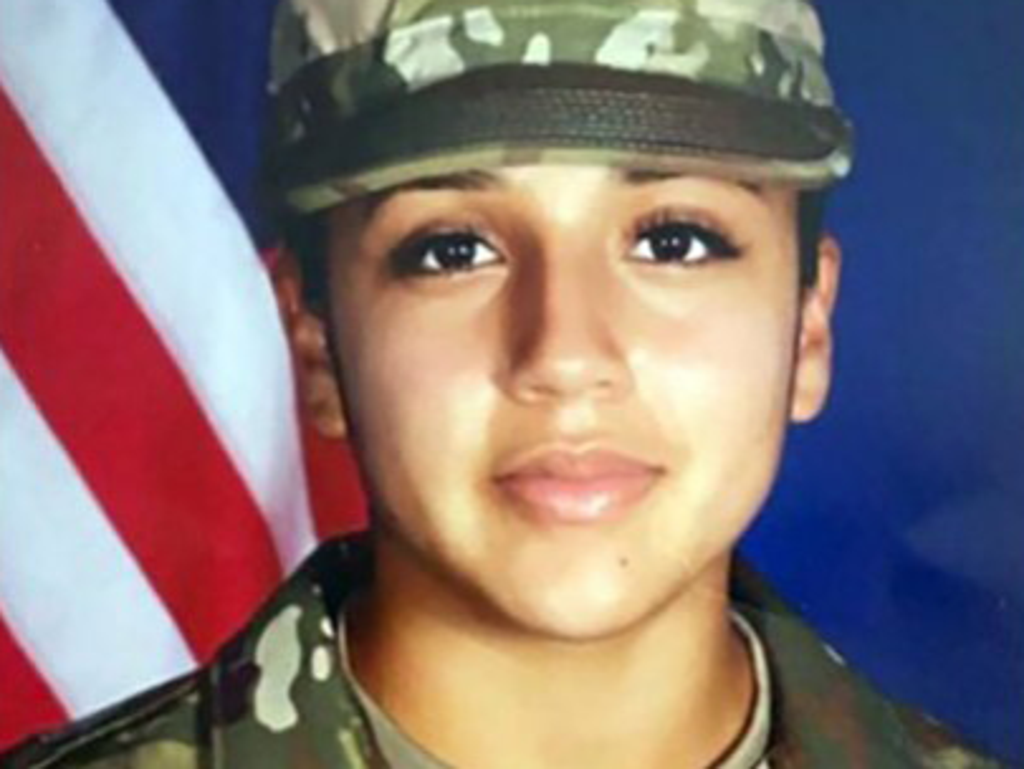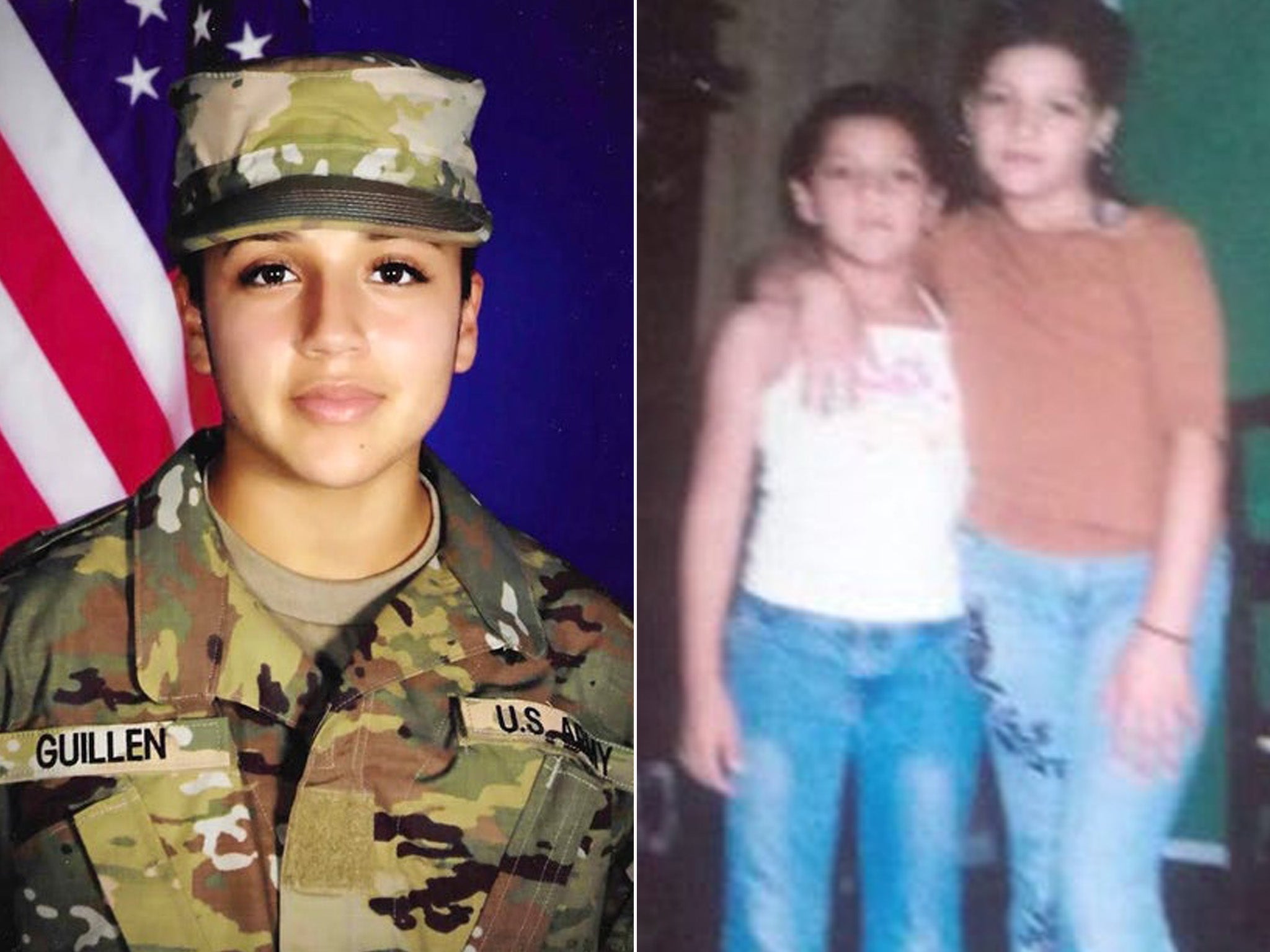
The chilling motive behind the brutal murder of Fort Hood servicewoman Vanessa Guillén has been revealed in a new court filing.
Guillén was 20 years old when she was bludgeoned to death with a hammer by her fellow soldier, Aaron Robinson, also 20, at an armoury in Fort Hood, Texas in April 2020.
The young soldier was initially reported missing, and her disappearance sparked a widespread search movement, but it wasn’t until 30 June that her dismembered remains were uncovered by investigators at Leon River in Bell County, Texas - about a half-hour drive from where she was last seen alive.
In a document filed in federal court by the Texas Department of Public Safety on 19 May, detectives describe an interview that took place with Cecily Aguilar, Robinson’s married girlfriend at the time of the ruthless killing and the only person to have been charged in relation to Guillén’s murder.
It was one of multiple interviews conducted between investigators and Aguilar throughout the search for the missing soldier in the spring of 2020, but during this specific meet-up, they pressed the then-suspected killer’s girlfriend about why she believed Robinson might have wanted to kill Guillén.

“Guillén saw Robinson’s cell phone lock screen, which contained a picture of Aguilar,” the document stated. “He told her he was worried about getting in trouble for violating the Army’s fraternisation rules since Aguilar was still married to another soldier and he hit Guillén in the head with a hammer.”
Aguilar, who faces federal charges of tampering with a witness and destruction and alteration or falsification of records in a federal investigation, had been engaged in a relationship with Robinson while being married to Keon Aguilar, another soldier.
Aguilar also confessed during this interview to assisting Robinson in the coverup of the gruesome slaying, reportedly helping to dismember the 20-year-old’s body near the river where her body was discovered over the course of two nights after the 22 April murder.
“Aguilar and Robinson placed the bones in three or four holes and thought they would not be discovered for a couple of years,” the document states.
The day after the soldier’s remains were discovered and the confession from Aguilar made about Guillén’s disappearance, authorities attempted to confront Robinson about their findings.
Earlier, the 20-year-old man had been placed under surveillance at Ford Hood, but he managed to elude their watch and escape at approximately 10:10pm on 30 June, the document states.
The next day, officers from the Killeen Police Department managed to track down Robinson, but before they could get to him the soldier pulled out a gun and shot himself in the head.
Aguilar’s confession to authorities that she assisted in burying Guillén’s body led to her federal charge of tampering with evidence. This confession, however, is currently being challenged by her defence team, who argue that because the accused woman wasn’t presented before a judge until six days after she was federally charged, the contents of her admission should be considered inadmissible.
The prosecution, for their part, contend that the delay was because Aguilar was being detained in state custody, not federal.
In the 19 May motion filed with the US District Court, Aguilar’s defence argues that “the Government still must comply with the presentment requirements, even if a defendant is in state custody, where there exists a ‘working arrangement’, ‘collusion’, or ‘collaboration’, between state and federal officers,” according to 6 News.
According to the news outlet, this is the second time that Aguilar’s defence team has tried to suppress her confession from being admitted as evidence. The previous time, in March 2021, a judge denied that motion, while back in January, a judge also denied having the indictment dismissed altogether.







